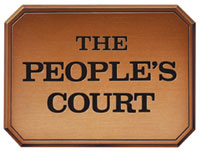 The question came to me from my brother via email, and I confess not to know the answer. But the question sure is intriguing.
The question came to me from my brother via email, and I confess not to know the answer. But the question sure is intriguing.
Yankee superstar Alex Rodriguez admitted today that he used steroids in 2001-2003 while playing for the Texas Rangers. In one of those years, 2003 he took the MVP title. He said at the time:
“It means the world to me…I’m so proud. It really is a validation to all the hard work and dedication.”
Right. Validation for hard work. OK. Moving on to the ramifications.
Those titles usually carry big, fat bonuses with them. A-Roid picked up a $500,000 bonus after he won the award getting six first place votes from the Baseball Writers Association, which decides such titles, among his 240-vote total. And in second place was Carlos Delgado with five first place votes among his 190-vote total. I think it’s fair to say that A-Roid would not have received those votes if the writers knew he was getting a little chemical help.
Delgado, it seems, has a very credible claim he was cheated out of the MVP award which, depending on the nature of his contract, could have been worth a small fortune for the win. But it’s not just bonus money at stake; he probably would have received larger future contracts. There’s a lot of money in being #1.
So can Delgado bring a successful suit? Anyone with an answer?
Some sites covering the story:
- What To Make Of A-Rod’s Admission That He Used Steroids (Fan IQ Blog)
Well, rather then take the long, lawsuit-infested road to eventual full discovery that he did in fact use steroids, Alex Rodriguez today just decided to openly admit he used PEDs for three years as a Texas Ranger. And thankfully he didn’t say that he accidentally “ingested” something.
- A-Rod’s Confession Is Solid Move (MLB Fanhouse)
But regardless of the forthcoming repercussions — and there will be plenty — A-Rod’s confession on national television will go down in history as a well orchestrated public relations move. I’m serious.
- How do you punish A-Rod? (Dallas Morning News)
How do you do anything to admitted steroid user Alex Rodriguez? It’s no wonder he came clean. There is absolutely nothing that Major League Baseball will do.
- ARoid: Alex Rodriguez Confesses to Steroid Use but Leak of 2003 Test May Have Been Criminal (Findlaw)
Over the weekend, New York Yankees third baseman Alex Rodriguez was identified as having tested positive for steroid use in 2003. Today, he admitted to using performance enhancing drugs from 2001 to 2003. While the highest paid player in baseball history may suffer permanent damage to his legacy, the leak of his positive test in 2003 may have been a crime.
- Playing Defense Against A-Rod’s Incomplete Contract (Dan Hoffman @ Concurring Opinions)
Sometimes it’s tough to find a legal angle on the latest micro-scandal. Not so with the revelations that the hated Yankee slugger Alex Rodriguez tested positive for steroids in 2003.
- MLB Great Debates: Is Alex Rodriguez’s Admitted Use of Steroids a Big Deal? (MLB Outsider)
Fans seem to feel that cheating somehow belittles the accomplishments of past greats whose numbers no longer hold up. But when exactly did cheating in baseball start?
- Alex Rodriguez admits to using steroids: Slugger injects truth, says it was ‘very stupid’ (Phil Rogers @ Chicago Tribune)
Rodriguez does not appear to face any MLB sanctions or federal prosecution for steroids. Prosecutors might press him to reveal the source of his drugs; they have gone after distributors more than users.

